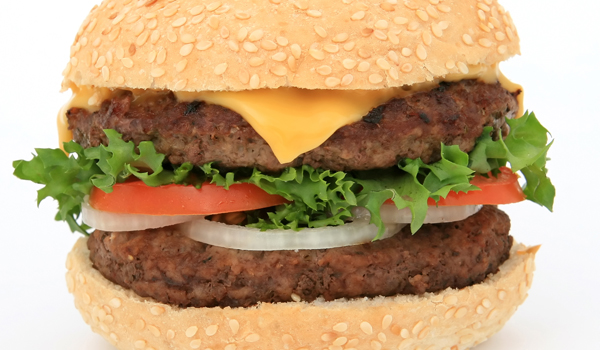Low-Carb Diets Imperil People Prone to Heart Disease

A low-carb, high-fat diet might help some people lose weight, but it could be deadly to those with a family history of heart disease, according to research presented March 25 at a meeting of the American College of Cardiology in Chicago.
Researchers from the University of Alabama at Birmingham found that obese rats fed a high-fat, low-carb diet — comparable to what many humans consume — had more damaging and deadly heart attacks than obese rats fed a low-fat diet.
Worse, the findings suggest that this type of diet also impairs recovery immediately following a heart attack.
Although the researchers say that low-carb diets do have benefits, they advise caution.
"Right now, if I were considering a high-fat, low-carb diet, I would ask myself if the benefits outweigh the heart-attack issues this research has revealed," said Steven Lloyd of UAB, who led a set of four complementary studies. "If I had heart disease or I was predisposed to having a heart attack, I would think carefully before starting this type of diet."
Carbs vs. fats
Carbohydrates from foods such as vegetables, nuts and grains have been the primary source of calories for most of the world's people for millennia. The World Health Organization advocates a diet in which 55 percent to 75 percent of daily calories come from carbohydrates; 15 percent to 30 percent from fats; and 10 percent to 15 percent from proteins. [7 Perfect Survival Foods]
Get the world’s most fascinating discoveries delivered straight to your inbox.
The low-carb Zone Diet advocates a 40:30:30 ratio of carbs, fats and proteins, respectively; the Atkins Diet can be as low as 20 percent carbohydrates, with less concern about the protein-fat ratio. There is considerable scientific support for these low-carb diets as weight-loss programs. And Lloyd emphasized that his research does not suggest that high-fat, low-carb diets cause heart attacks.
Nevertheless, the long-term impact of high protein intake and fat on the heart and other organs is not well known.
At the heart of the damage
Lloyd and his colleagues focused only on naturally occurring heart attacks. They found that for obese rats on a high-fat diet, when a heart attack hit, it was larger and more punishing, causing more damage to the heart muscle and leaving less chance of recovery compared with equally obese rats on a low-fat diet.
One reason might be the role of fat in inducing oxidative stress and creating free radicals, which are highly reactive atoms and molecules that damage DNA and cellular walls, ultimately killing heart muscle cells.
Another reason, Lloyd said, could be that for the rats on a high-fat diet their hearts may have been starved for energy. Carbohydrates are the most efficient fuel when the heart is trying to recover from a damaging event, he said. In the high-fat diet, the primary fuel is ketones from fat metabolism, which is adequate for a healthy heart but not a damaged one. The lack of glucose that would have been supplied by carbohydrates leaves the heart less able to heal itself.
Many advocates on both sides of the diet debate — the low-fat and low-carb camps — have reached some common ground in recent years. Both camps now emphasize "good carbs," which are complex carbohydrates found in whole grains and beans, as opposed to the simple carbs found in sugar, white bread and potatoes; and "good fats," such as the healthful omega-3 fatty acids found in some fish, and unsaturated fats found in poultry.
Someday, we might all eat at the same table.
Christopher Wanjek is the author of the books "Bad Medicine" and "Food At Work." His column, Bad Medicine, appears regularly on LiveScience.

Christopher Wanjek is a Live Science contributor and a health and science writer. He is the author of three science books: Spacefarers (2020), Food at Work (2005) and Bad Medicine (2003). His "Food at Work" book and project, concerning workers' health, safety and productivity, was commissioned by the U.N.'s International Labor Organization. For Live Science, Christopher covers public health, nutrition and biology, and he has written extensively for The Washington Post and Sky & Telescope among others, as well as for the NASA Goddard Space Flight Center, where he was a senior writer. Christopher holds a Master of Health degree from Harvard School of Public Health and a degree in journalism from Temple University.
 Live Science Plus
Live Science Plus





